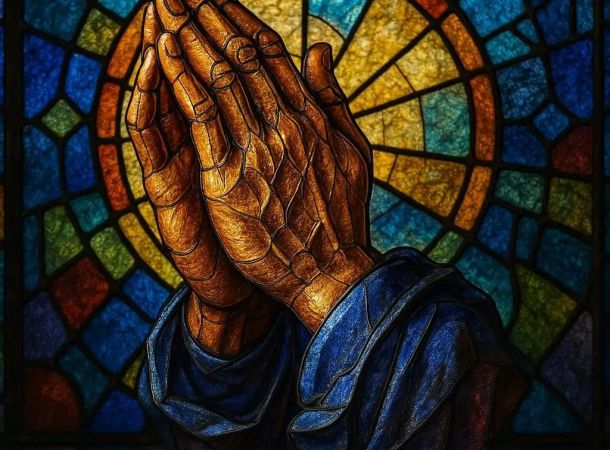A Continual Fire
So, we have dipped our toes into Leviticus, a pretty intense Torah book describing the Tabernacle’s sacrificial worship system. The next Torah Portion in review is Tsav, including chapters 6:1-8:36, and means “command”. I started Leviticus with the altar, and today, we will focus on a fire that God commanded to be continually burning. A quick recap of my foundational beliefs: I believe that God made humans out of earth and spirit. This understanding helps me fulfill my purpose on earth: rule over my earthly nature by my spirit nature. Since abandoning myself to this understanding, I find that this idea laces every chapter of the Bible, even Leviticus–especially Leviticus.
Leviticus is mostly instructions given to the Levites, descendants of the third son of Jacob, who also include the kohanim or Priests. God instructed Israel to draw near Him as a Kingdom of Priests and reconcile the nations to the Holy One. The author of 1 Peter 2:9 calls followers of Yeshua a Kingdom of Priests. This verse would imply that we should be intrigued by Leviticus and its wisdom on worship and reconciliation.
The Lubavitcher Rebbe states, “Shabbat is when we disengage ourselves from all things material; “ritual impurity” (tum’ah) represents an opposite state—one of excessive enmeshment in the mundane. Yet the Torah instructs that the fire upon the altar must be kept burning “even on Shabbat” and “even under conditions of ritual impurity.”
There are times when we believe ourselves to be “above it all,” as the spirituality of the moment transports beyond the so-called trivialities of physical life. Conversely, there are times when we feel overwhelmed by those very “trivialities.” Says the Torah: the fire on your internal altar must—and can—be kept burning at all times. No moment in your life is too exalted or too debased to sustain your passion and enthusiasm in the fulfillment of the purpose to which you were created, which is to raise up to G‑d the materials of your everyday existence. (link here)
Leviticus 6:12: And the fire on the altar shall be kept burning on it; it shall not be put out.
If the altar refers to our heart or soul, the fire that continually burns on it or within it could be love. This instruction would encourage us to keep our love for God and others alive. Our duty as believers is not to be in a constant state of meditative bliss or to be so focused on the rights and wrongs of life that we lose our fire; instead, our duty is to bring holiness to everyday life. I am not trying to rid myself of the earthly experience. I am using my humanity to reconcile with and worship the Holy One. That means holiness is equal to authenticity and vulnerability. It recognizes my human faults, humbly offering them to the Holy One, and engaging in a growth process. First, I need to align my beliefs with the written word. Holiness is when my beliefs, words, and actions are aligned, making me WHOLEY. Whole, not broken, twisted, or corrupt as a vessel of the Divine Breath.
I don’t avoid mistakes in pursuing holiness; I try to learn from them. I don’t judge others based on my idea of holiness; I empathize with them, knowing this journey is not for the faint of heart. I am not even convinced that there is a place to arrive at or that this constant internal fire is constantly filtering, burning off the dead things, and refining the things that produce life.
In marriage, we talk about keeping the fire alive, but what does that mean? Does it mean staying engaged, like, every day? Staying humble and willing to say sorry? Staying in a state where reconciliation is the focus whenever a rupture occurs? Does it mean we need to be authentic and aligned with the truth? I think so, and this is most likely what the Levitical instructions are about: God asking His people to stay engaged in connection, humility, reconciliation, and truth. Easy breezy, right? Haha, not at all; however, He strengthens us with His word and Spirit.
There is another interesting tidbit in this portion, it is in Leviticus 6:10-11;
“And the priest shall put on his linen garment, and his linen trousers he shall put on his body, and take up the ashes of the burnt offering which the fire has consumed on the altar, and he shall put them beside the altar. Then he shall take off his garments, put on other garments, and carry the ashes outside the camp to a clean place.”
John 20:6-7: Then Simon Peter comes following him, and he entered the tomb. He looks upon the linen strips lying there, and the face cloth that had been on His head. It was not lying with the linen strips, but was rolled up in a place by itself.
Interestingly, the author of Hebrews refers to Yeshua as a High Priest who offered Himself to the Holy One as a sacrifice. He left His linen garments in the tomb as if to abide by the priestly instruction of switching priestly garments out when taking the consumed offering outside of the city to a clean place. He took it to the heavenly city, that spiritual realm, where He entered the Holy of Holies.




Leave a Reply